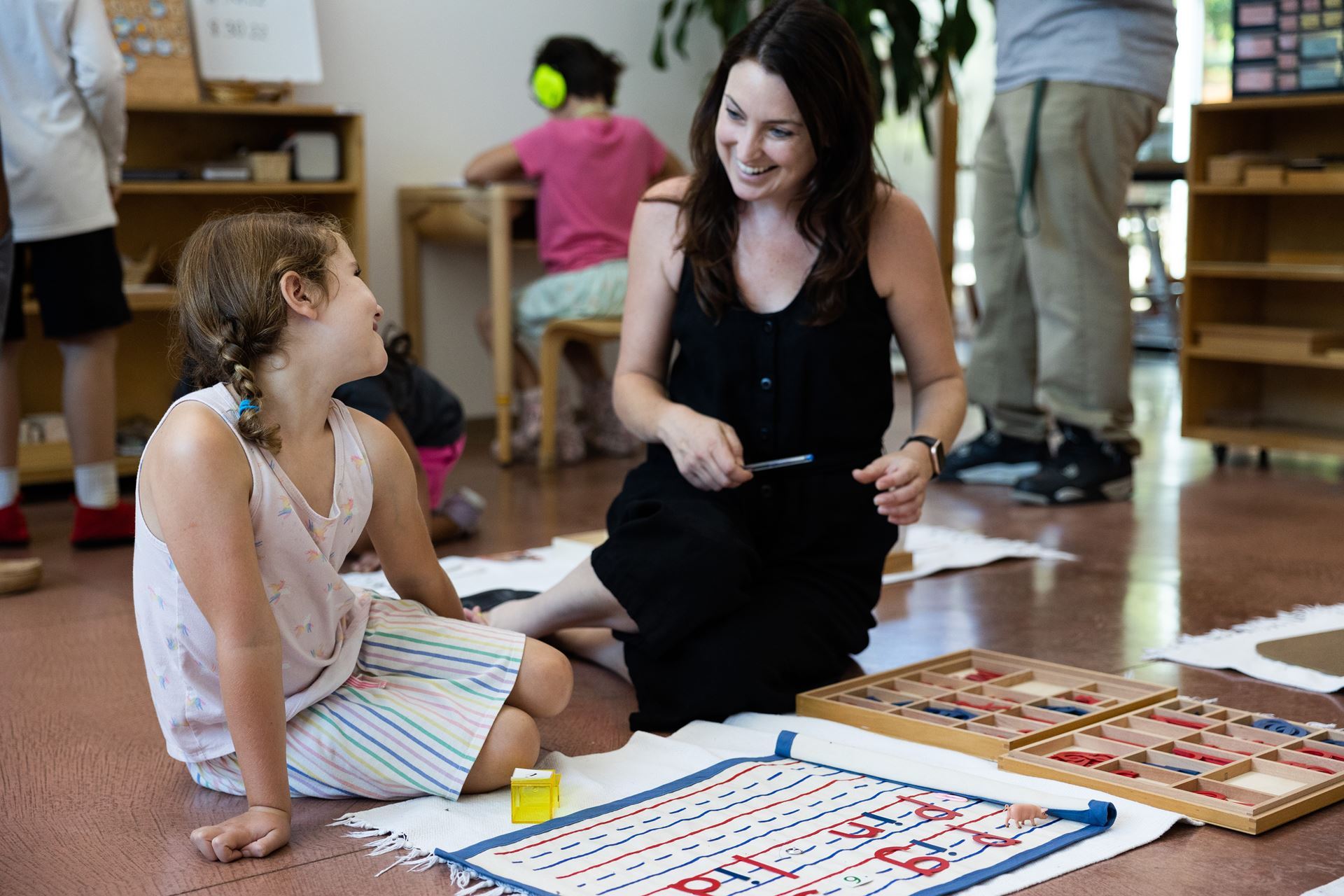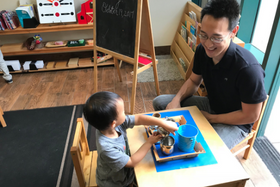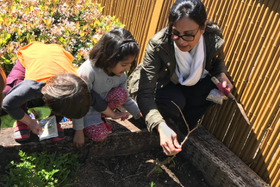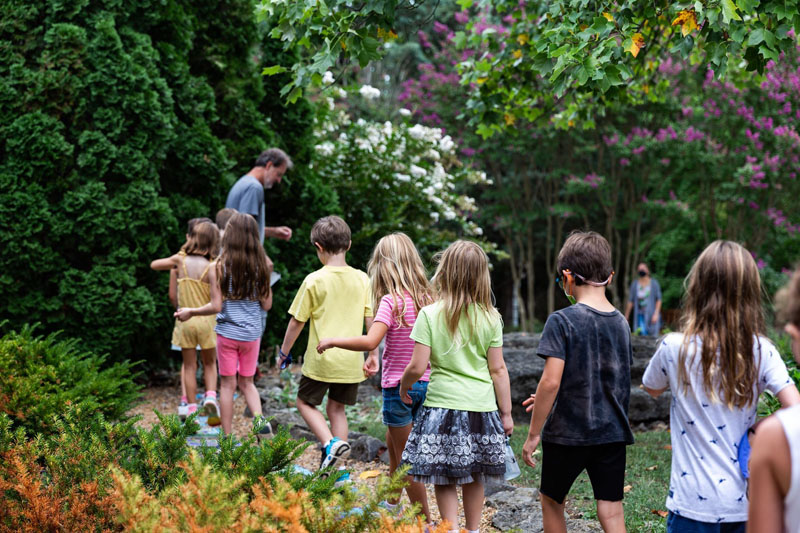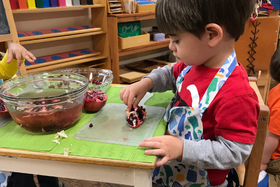POSITIVE DISCIPLINE and MontEssori education
Photos by: Emily Allen for Abintra Montessori School |
Why Use Positive Discipline in a Montessori Classroom?
Positive Discipline and Montessori principles directly align with each other. Since the principles compliment one another, it is common to find Montessori teachers who seek training in Positive Discipline. Many Montessori training centers include Positive Discipline workshops as part of their credentialing programs. Additionally, Montessori schools frequently offer Positive Discipline classes for parents. The Positive Discipline approach helps make the classroom, home, and school community environments more cohesive and respectful. Therefore, it is not surprising that Positive Discipline is a popular approach in the Montessori arena worldwide.
Both Montessori and Positive Discipline philosophies share a profound respect for the child. Montessori theory trains teachers to create a prepared physical environment in which children can thrive. Positive Discipline offer strategies to prepare the social-emotional environment that helps children find a sense of belonging and significance in their community.
Both methods honor the various planes of development and adapt strategies that help children feel successful at each stage. Each approach aims to help children learn by experience and become comfortable with making mistakes. The idea that “mistakes are opportunities to learn and grow” is embraced by Montessori and Positive Discipline.
Montessori and Positive Discipline are holistic models. Both strive to help the whole child - body, mind, and spirit. They support the child’s work toward intrinsic motivation. Used together, Montessori and Positive Discipline approaches give teachers what they need to create cooperative, empathetic, and supportive classroom communities.
GET CERTIFIED IN POSITIVE DISCIPLINE!
Positive Discipline in the Classroom Would you like to learn an effective discipline approach that integrates social and emotional learning while reducing challenging student behaviors? Register to any of our upcoming Positive Discipline in the Classroom certification workshops. | Positive Discipline for Early Childhood Educators Are you interested in learning how to apply the principles and tools of Positive Discipline, an Adlerian research-based philosophy, to working with groups of young children, and how to best teach life skills in a classroom or care setting? Register to any of our upcoming Positive Discipline for Early Childhood Educators certification workshops. |
FIVE CRITERIA FOR positive disicpline |
|
|
|
|
|
TESTIMONIALS
The Montessori Primary classroom (3 - 6 years) is a great space to practice Positive Discipline. PD and Montessori pedagogy are very similar and complementary in the way they approach the child with dignity and respect, and address errors/mistakes. It seems logical to apply them in conjunction with each other. – Samantha Iyer, Primary Guide
As a Montessori Teacher Trainer, I am often asked what to do when the prepared environment doesn’t feel like it is enough, or how to respond to children who wander, argue, or rarely engage with purposeful work. Positive Discipline offers the tools to effectively address these situations, and many more, with respect, confidence, and encouragement. I’ve seen teachers come back to this class again and again to gain new skills and insights. It is a program that keeps us all as lifelong learners. – Jody Malterre, Positive Discipline Trainer
When we used Positive Discipline’s encouragement model, we had a more win-win environment. The children benefited from the Positive Discipline tools that the adults around them learned. I highly recommend that parents, teachers, and school leaders all take Positive Discipline Training. – Yogi Patel, Positive Discipline Trainer, Primary Trained, Kinderhouse Montessori School
Montessori and Positive Discipline are perfect partners. Classroom management can be the most difficult thing for any new teacher to learn, and Positive Discipline codifies Montessori principles in a way that allows even new teachers to gain a practical understanding of “deviations” and to apply these principles to the typical behavioural challenges of the modern child. Montessori provides a structure and a pedagogy that beautifully codifies the principles of Positive Discipline so that the unspoken messages of the “hidden curriculum” reinforce the overt communication. It’s a natural partnership that goes back to the mutual admiration that Adler and Montessori held for one another. – Mark Powell, Director of Education Services, Montessori Australia 
I feel like Positive Discipline helps children with self regulation - especially when out in public. They learn life skills including critical thinking, being kind and considerate, emotional regulation, independence, motivation, and empathy among others. These life skills lead to better social integration and helps children navigate society effectively as adults. – Vikram Sekar, Montessori Parent |

